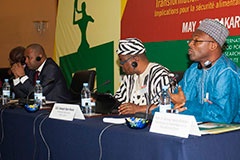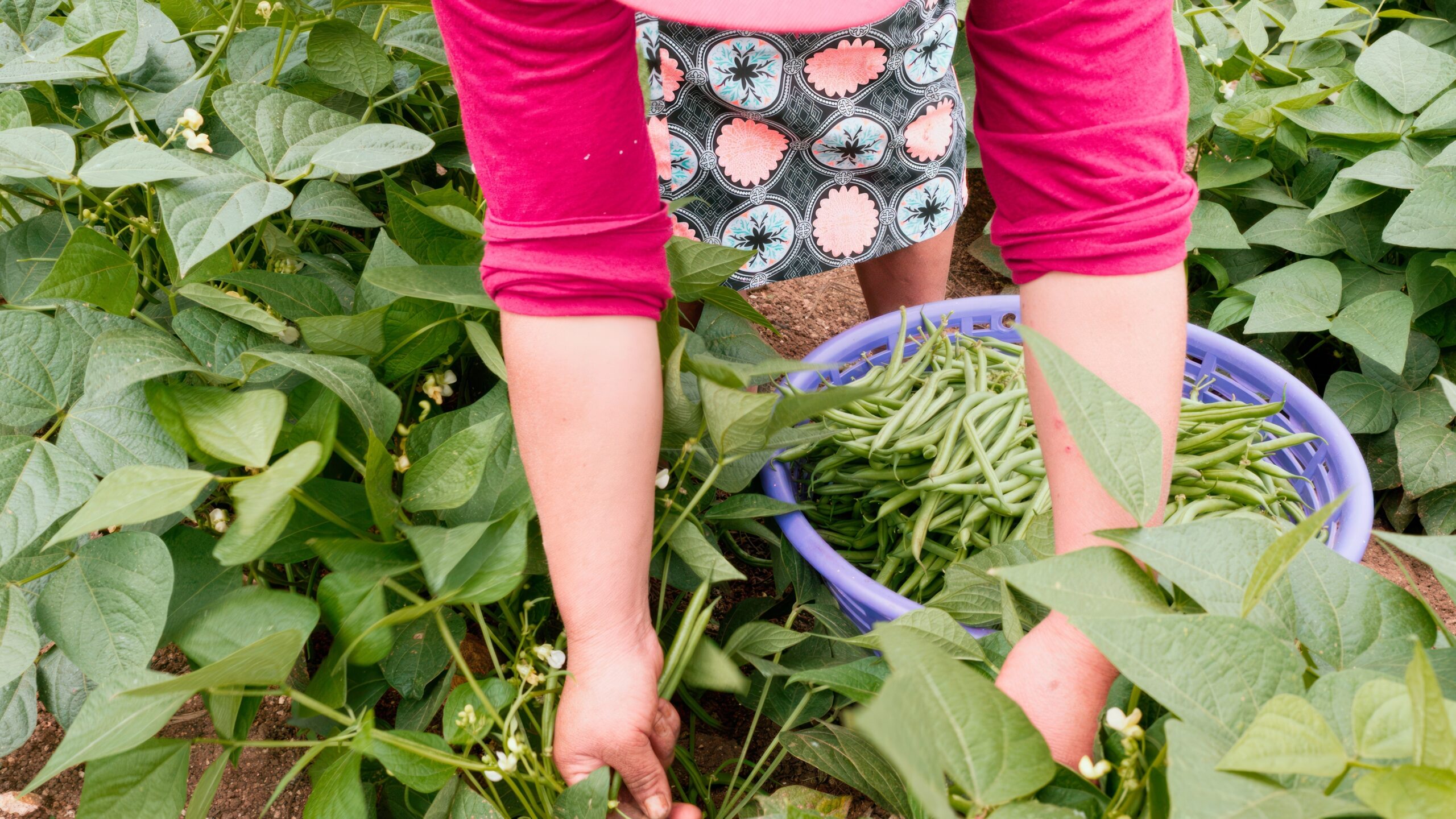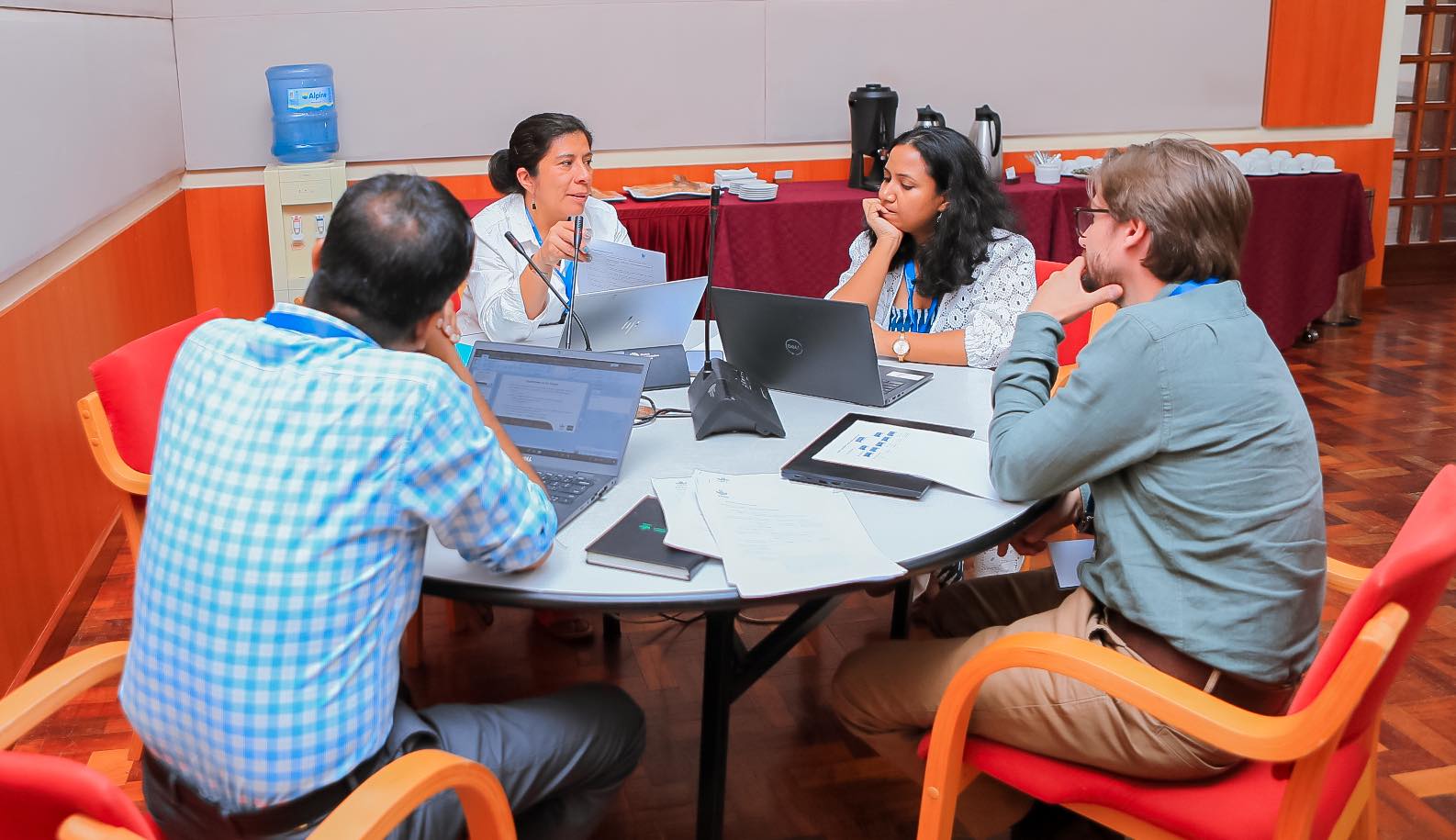This story originally appeared on the Food Security Portal blog.
Economic growth in the developing world relies heavily on credit, grants, and loans. But increasing poor populations’ access to these financial vehicles brings with it a significant amount of risk for lenders, both public and private. When selecting development interventions to financially support, lenders and donors are often faced with an “either/or” proposition – they can fund either more sustainable (and thus less risky) projects that may have lower poverty-reducing effects or less sustainable projects that will have a higher impact on poverty. How can lenders balance these two extremes in order to minimize their risk while still supporting their poverty-reducing goals?
IFPRI seeks to address this question through its Poverty Sensitive Scorecard project, now featured in more detail on the Food Security Portal’s Capacity Strengthening page . This project uses an innovative scorecard system that combines both risk scoring and poverty scoring; looking at these two factors together can help lenders balance the trade-off between sustainability and poverty targeting.
The project works by looking at a series of loan and grant applicants in four Central American countries. These projects are weighed by both their potential for poverty reduction, looking at such factors as market access and employment indicators, and their potential for sustainability, looking at the project’s direct beneficiaries and their financial characteristics. By assigning weights to each variable, the scorecard system allows lenders to more successfully determine which projects will have the most impact and the best chance of survival.
Since the project’s start in 2010, more than 50 projects from farmers’ associations in Guatemala, El Salvador, Honduras, and Nicaragua have been assessed; of these, nine have been selected for funding using the scorecard system. The nine selected projects represent a total investment of about US$1.7 million and will have nearly 6,000 beneficiaries (half of whom are women) who live in areas with high levels of poverty and a lack of market access. The projects support a wide range of agricultural products and markets, including coffee, chocolate, tropical fruits, and vegetables.
To view videos and a presentation on the project, visit the FSP Capacity Strengthening page. For more information, view the project website.
West Africa is on the cusp: after years of stagnation and decline, the region has seen steady growth for nearly two decades, and is moving from recovery to transformation
A workshop in Dakar, Senegal earlier this month encouraged high-level conversation on how the region can build on this success and accelerate economic transformation for regional food security. The workshop, organized by the International Food Policy Research Institute (IFPRI) and hosted by the Faculty of Economics and Management of Cheikh Anta Diop University of Dakar (FASEG/UCAD) and the Senegalese National Agricultural Research Institute (ISRA), brought together representatives from national and regional research institutions, ministers of agriculture, leaders of development organizations from throughout the region, and IFPRI researchers to discuss the role of agriculture and the need for capacity strengthening, investment in research and technology, and evidence-based policy recommendations.
Participants agreed that reversing the longstanding neglect of agriculture and investing to sustainable raise productivity among smallholder farmers is a key factor to ensure economic transformation. As Senegal’s Minister of Agriculture and Rural Equipment H.E. Abdoulaye Baldé said, “Agriculture should be the engine behind…development.”
“Agriculture used to be for the poor, but it’s now reaching everyone,” added Dr. Hubert Ali Ramazani, secretary for agriculture, fisheries, and livestock from the Democratic Republic of Congo.
Other ministers of agriculture from the region, including those from Sierra Leone and Ghana, as well as researchers from the region reiterated that West African countries need support to build national capacity for data collection, research, and policymaking. “To the donors in the room: invest in capacity development,” advised Professor Kimsy Savadogo of the University of Ouaga, Burkina Faso. “It’s not sexy, but if we’re not developing people and knowledge, we won’t move forward.”
IFPRI’s Maximo Torero underscored the need to improve institutions. “You can’t keep going at this velocity of growth—6 percent per year for 10 years—without capacity and human capital,” he said, “and these are linked to institutions. Without solid institutions, you won’t be able to sustain it.”
Another nearly universal concern was the need for increased investment in research and technology in agriculture. “We must consider researchers serious partners,” said H.E. Joseph Sam Sesay, Sierra Leone’s minister of agriculture, “because if there is no evidence, the president won’t invest.”
The ministers also emphasized a desire for continued support by IFPRI and other research institutions for the design, implementation, and analysis of their policies. “The bold position of taking IFPRI’s research right to the heart of the government… should be encouraged and deepened,” said Hon. Dr. Ahmed Yakubu Alhassan, Ghana’s deputy minister of food and agriculture.
IFPRI Director General Shenggen Fan closed the workshop by bringing the discussion back to a key underlying theme. “Africa is growing rapidly, but from a resource boom, not productivity improvement. Growth has not moved to nutrition and health, and many African countries need to protect the poor and hungry.” The key missing ingredient? “Capacity, capacity, capacity.”
For more information on the workshop, “Economic Transformation in West Africa: What It Means for Food Security and Poverty Reduction,” including the agenda, PowerPoint presentations, and a thematic research note, “Patterns of growth and structural transformation in Africa: Trends and lessons for future development strategies“, please see the event page.







